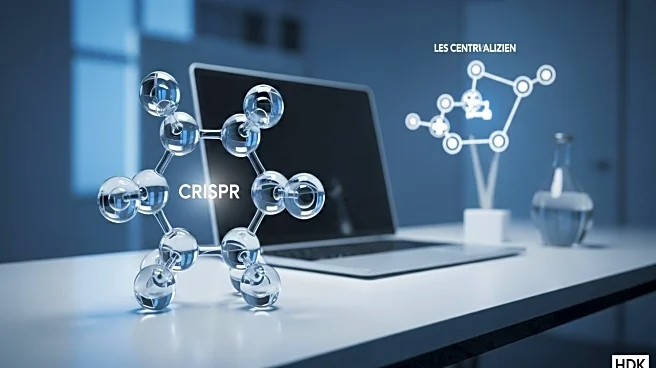What is the story about?
What's Happening?
VedaBio, a biotechnology company, has entered into a non-exclusive license agreement with Mammoth Biosciences to utilize CRISPR-based technologies in diagnostic applications. This collaboration aims to accelerate the development of diagnostic solutions that are both rapid and accurate, particularly for decentralized healthcare settings such as urgent care and outpatient clinics. The partnership allows VedaBio access to Mammoth's CRISPR intellectual property, which is expected to enhance VedaBio's proprietary platform for molecular detection. Frederic Sweeney, President and CEO of VedaBio, expressed enthusiasm about the partnership, highlighting the potential to develop highly targeted, amplification-free molecular tests. Janice Chen, Co-founder and CTO of Mammoth Biosciences, emphasized the impact of CRISPR-based diagnostics on patient care, noting the synergy between Mammoth's technology and VedaBio's approach.
Why It's Important?
The partnership between VedaBio and Mammoth Biosciences is significant as it represents a step forward in the application of CRISPR technology in healthcare diagnostics. CRISPR-based diagnostics offer high specificity and sensitivity, which are crucial for accurate disease detection and management. By focusing on decentralized healthcare settings, the collaboration aims to make advanced diagnostic tools more accessible, potentially improving patient outcomes and reducing healthcare costs. This development could lead to faster diagnosis and treatment, particularly in settings where traditional laboratory infrastructure is limited. The integration of CRISPR technology into VedaBio's platform may also pave the way for new diagnostic tests that address real-world clinical needs more effectively.
What's Next?
With the agreement in place, VedaBio is expected to continue developing its CRISPR-based diagnostic platform, potentially leading to new product launches in the near future. The collaboration may also inspire other biotechnology companies to explore similar partnerships, further advancing the field of molecular diagnostics. As the technology matures, stakeholders in the healthcare industry, including clinics and hospitals, may begin to adopt these new diagnostic tools, influencing the standard of care. Additionally, regulatory bodies may need to evaluate and approve these new technologies, ensuring they meet safety and efficacy standards.
















